Category: RB 2010 Conf
Links
Economic Impact
The estimated 29.6 million small businesses in the United States: Employ just over half of the country’s private sector workforce Hire 40 percent of high tech workers, such as scientists, engineers and computer workers Include 52 percent home-based businesses and two percent franchises Represent 97.3 percent of all the exporters of goods Represent 99.7 percent of all employer firms … Continue reading “Economic Impact”
Glossary
Microbusiness – A common term used for businesses with under 5 employees.Microbusinesses are so small, however, that there are few, if any, financial or government resources in place to ensure their resilience.According the Census Bureau’s 2007 report, 10% of Small Businesses (under 500 employees) have under 5 employees. Less commonly used are the terms Nanobusiness … Continue reading “Glossary”
Research Projects - Community Economies
USTREAM: Your own Free Live Broadcast in 3 minutes. Sign up NOW, plug in your camera, enable the widget, click Start Broadcast. You are now LIVE
Building Resilient Local Economies | Local Capital Summit
Building Resilient Local Economies | Local Capital Summit
The Guardian Life Small Business Research Institute: Small Bizdom
Cooperative Fund of New England | A socially responsible lending organization and investment option. Supporting Co-ops since 1975.
What Is Organic Growth in Business? | eHow.com
Small Biz Stats & Trends | SCORE
Statistics of U.S. Businesses- Tabulations by Geography, Industry, and Enterprise Employment Size
Agenda
Dealing with People
- remaining flexible (even supple!) when working with friends and family
Ira Bryck - finding and holding onto the pulse of your many stakeholders
Kirsten Bonanza
Driving Collaborative Economy
- reinventing yourself when markets change; embracing trends in the new economic era
Prakash Laufer - fostering collaborations among peers and competitors in order to sustain and grow revenues
Dan Finn - Create It! A “money multiplier” simulation game and discussion on creating money locally
William Spademan
Alternative Funding
- bootstrapping your organization when cash is scarce; growth with non-traditional capital
Tim Cohen-Mitchell - planning for and attracting investment opportunities
Terry Mollner
Sustainability and Resilience as a strategic focus
- making the case for resilience as a strategic focus
Jan Morgan - local politics: what works and what could be better
Catherine Ratte
Creating and spending your money
- debt versus equity; balancing the two and planning ahead
Mary Hoyer - taking on debt; how much do you really need?
John Waite - once you get the capital, what do you do with it?
Rick Feldman
Announcing Summit Facilitators
We are pleased to announce the discussion facilitators for November 13
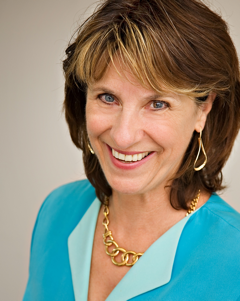
Ingrid Bredenberg, M.A. is a strategic coach who works with leaders in government, healthcare, cooperatives and boards of directors. She helps them work together better with improved communication, decision-making and strategic thinking skills. Ingrid brings fresh approaches and leading edge tools to build organizational cultures of trust and accountability. She is known for helping clients boost their creativity, performance and EQ (enjoyment quotient).
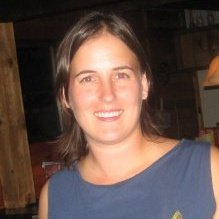 Kirsten Bonanza is a partner at ALIVE Communities and a sustainability educator, curriculum developer, and community development researcher. A remarkably effective solutions systems thinker and doer, Kirsten has a deeply respected capacity to observe complex situations and efficiently identify simple, creative and adaptable answers delivered through the lens of sustainability and cultural awareness. Her research and curator roles for ALIVE Communities provides her with the frequent opportunity to explore and capture economic anthropology stories from around the world. Kirsten is also the founder of Create Better Impact and the highly regarded blog – Sustainable Bonanza.
Kirsten Bonanza is a partner at ALIVE Communities and a sustainability educator, curriculum developer, and community development researcher. A remarkably effective solutions systems thinker and doer, Kirsten has a deeply respected capacity to observe complex situations and efficiently identify simple, creative and adaptable answers delivered through the lens of sustainability and cultural awareness. Her research and curator roles for ALIVE Communities provides her with the frequent opportunity to explore and capture economic anthropology stories from around the world. Kirsten is also the founder of Create Better Impact and the highly regarded blog – Sustainable Bonanza.
Kirsten will be facilitating the discussion on Finding and holding onto the pulse of your many stakeholders.
 Tim Cohen-Mitchell founded a health clinic in remote Zambia in 1987, which continues to bring basic medical care to the underserved. From 1988 to 1993, Tim founded and managed Ajabu African Arts, a youth handicrafts fair trade co-op in Nairobi, Kenya and Amherst,MA. From 1994-1997, he served as an AmeriCorps*VISTA and project manager at Franklin County Community Development Corporation in Greenfield, MA where he helped 200 local artisans amd specialty food producers launch a retail outlet; organized peer-lending groups; piloted a welfare-to-work co-op business training program, and co-founded the community currency, Valley Dollars, and its issuer, the Valley Trade Connection, a trading network of 450 residents and small businesses. Tim began working in Orange, MA in 1997 as community organizer at Orange Revitalization Partnership, coordinating Memorial Park restoration, volunteer recognition, summer youth festivals, and a teen center. It was at ORP that Tim founded YES in 1998. He is author of numerous articles, including Community Currencies at a Crossroads: New Ways Forward and the book, Journey of Dreams: A Teenager’s Life in Kenya, and co-author, with Tony Savdié, of Currencies in Community Development Center for International Education. Tim will be facilitating the discussion on Bootstrapping your non-profit or social enterprise when cash is scarce: using non-traditional capital to start or grow your venture
Tim Cohen-Mitchell founded a health clinic in remote Zambia in 1987, which continues to bring basic medical care to the underserved. From 1988 to 1993, Tim founded and managed Ajabu African Arts, a youth handicrafts fair trade co-op in Nairobi, Kenya and Amherst,MA. From 1994-1997, he served as an AmeriCorps*VISTA and project manager at Franklin County Community Development Corporation in Greenfield, MA where he helped 200 local artisans amd specialty food producers launch a retail outlet; organized peer-lending groups; piloted a welfare-to-work co-op business training program, and co-founded the community currency, Valley Dollars, and its issuer, the Valley Trade Connection, a trading network of 450 residents and small businesses. Tim began working in Orange, MA in 1997 as community organizer at Orange Revitalization Partnership, coordinating Memorial Park restoration, volunteer recognition, summer youth festivals, and a teen center. It was at ORP that Tim founded YES in 1998. He is author of numerous articles, including Community Currencies at a Crossroads: New Ways Forward and the book, Journey of Dreams: A Teenager’s Life in Kenya, and co-author, with Tony Savdié, of Currencies in Community Development Center for International Education. Tim will be facilitating the discussion on Bootstrapping your non-profit or social enterprise when cash is scarce: using non-traditional capital to start or grow your venture
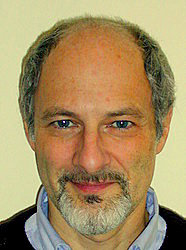 Rick Feldman is the consummate “civic action citizen”, as a leader in not-for-profit and commercial enterprises. He is a regional and business economics analyst, policy analyst; has owned two small companies (software developed for high-end regional economic analysis for use in regional planning and environmental action; and network/systems integration for large-scale collaboration building); was an organization and business development consultant; and currently is a financial services professional with the financial planning and advising firm Ostberg & Associates. Rick sits on many local Boards and is active in civic and social action organizations including Center for the Arts, Support Our Schools, Chamber of Commerce and Rotary.
Rick Feldman is the consummate “civic action citizen”, as a leader in not-for-profit and commercial enterprises. He is a regional and business economics analyst, policy analyst; has owned two small companies (software developed for high-end regional economic analysis for use in regional planning and environmental action; and network/systems integration for large-scale collaboration building); was an organization and business development consultant; and currently is a financial services professional with the financial planning and advising firm Ostberg & Associates. Rick sits on many local Boards and is active in civic and social action organizations including Center for the Arts, Support Our Schools, Chamber of Commerce and Rotary.
Rick will be facilitating the discussion on Once you get the capital, what do you do with it?
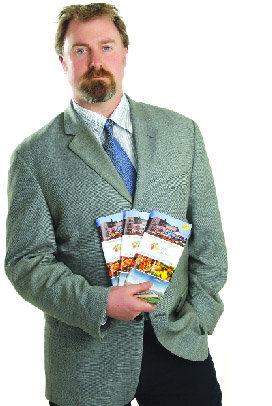 Dan Finn has been making our local community a better place for years through his tireless volunteer efforts as manager of PV Local First and his paid work with folks with disabilities at Riverside Industries. When he isn’t educating and encouraging folks to support locally owned businesses or start up their own BALLE network, he is educating Congress on climate solutions, hiking through canyons, and actively living all modes of non-violence. In Dan’s words: To all who care about good jobs, good government, a healthy environment, peace, healthcare for all, good affordable schools, family farms, open space, corruption free voting, corporations acting for the betterment of themselves AND the greater society -please do all you can.
Dan Finn has been making our local community a better place for years through his tireless volunteer efforts as manager of PV Local First and his paid work with folks with disabilities at Riverside Industries. When he isn’t educating and encouraging folks to support locally owned businesses or start up their own BALLE network, he is educating Congress on climate solutions, hiking through canyons, and actively living all modes of non-violence. In Dan’s words: To all who care about good jobs, good government, a healthy environment, peace, healthcare for all, good affordable schools, family farms, open space, corruption free voting, corporations acting for the betterment of themselves AND the greater society -please do all you can.
Dan will be facilitating the discussion on Fostering collaborations among peers and competitors in order to sustain and grow revenues
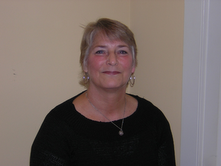 Mary Hoyer is a community and cooperative development consultant working out of Amherst, Massachusetts. She works with the Cooperative Fund of New England, a lending organization for cooperatives and community-based nonprofits, as well as with the Eastern Conference for Workplace Democracy, a regional consortium of democratically-owned and managed businesses and their supporters. She has worked in organizational development and governance, anti-racism and anti-apartheid initiatives, public and community education, and union organizing. Mary enjoys reading about and discussing politics, loves animals, and is an avid mystery reader.
Mary Hoyer is a community and cooperative development consultant working out of Amherst, Massachusetts. She works with the Cooperative Fund of New England, a lending organization for cooperatives and community-based nonprofits, as well as with the Eastern Conference for Workplace Democracy, a regional consortium of democratically-owned and managed businesses and their supporters. She has worked in organizational development and governance, anti-racism and anti-apartheid initiatives, public and community education, and union organizing. Mary enjoys reading about and discussing politics, loves animals, and is an avid mystery reader.
Mary will be facilitating the discussion on Debt versus equity; balancing the two and planning ahead
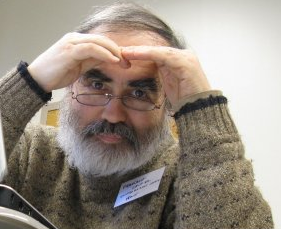 Prakash Laufer is the board president of United for a Fair Economy and for 18 years was the CEO/co-owner of Motherwear. He and his wife Jody grew this home business to 65 employees and 11 Million in sales. For many years he has organized performance art in Northampton, published the New England Prout journal (economic democracy), andhelped found the Connecticut River Valley Businesses for Social Responsibility which has evolved into Pioneer Valley Local First – PVlocalfirst.org.
Prakash Laufer is the board president of United for a Fair Economy and for 18 years was the CEO/co-owner of Motherwear. He and his wife Jody grew this home business to 65 employees and 11 Million in sales. For many years he has organized performance art in Northampton, published the New England Prout journal (economic democracy), andhelped found the Connecticut River Valley Businesses for Social Responsibility which has evolved into Pioneer Valley Local First – PVlocalfirst.org.
Prakash will be facilitating the discussion on Reinventing yourself when markets change; embracing trends in the new economic era
 Terry Mollner is the Chairman of Stakeholders Capital, LLC and is a founder and director of the Calvert Social Investment Funds – the first family of socially responsible mutual funds which today holds over $5 billion under management. He also sits on the board of Ben & Jerry’s, a company he tried to buy in 2000 and ultimately helped become a model of social responsibility while inside a multinational (Unilever). Terry is the author of a book on personal and corporate maturation and, together with his foundation, the Trusteeship Institute and the Aspen Institute, convened the founders of Stonyfield Farms, Ben & Jerry’s, Dagoba Chocolate, Odwalla, Honest Tea, etc. to film interviews about what they learned and wished they’d thought of prior to selling to multinationals.
Terry Mollner is the Chairman of Stakeholders Capital, LLC and is a founder and director of the Calvert Social Investment Funds – the first family of socially responsible mutual funds which today holds over $5 billion under management. He also sits on the board of Ben & Jerry’s, a company he tried to buy in 2000 and ultimately helped become a model of social responsibility while inside a multinational (Unilever). Terry is the author of a book on personal and corporate maturation and, together with his foundation, the Trusteeship Institute and the Aspen Institute, convened the founders of Stonyfield Farms, Ben & Jerry’s, Dagoba Chocolate, Odwalla, Honest Tea, etc. to film interviews about what they learned and wished they’d thought of prior to selling to multinationals.
Terry will be facilitating the discussion on Planning for and attracting investment opportunities
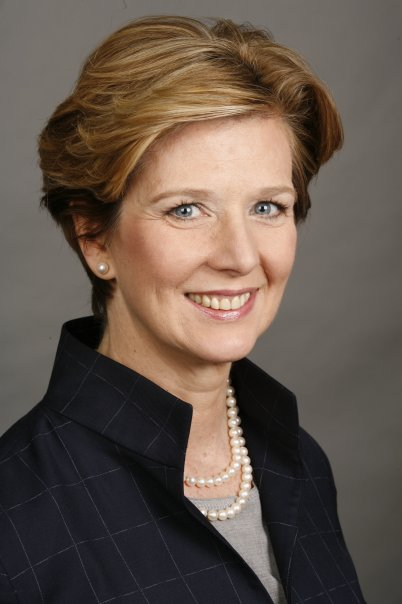 Jan Morgan is President of both CSRwire, a Springfield based international newswire, and Morgan Amadeo LLC, an international consulting group focusing on strategic planning and project implementation for NGO’s, nonprofit organizations, governments, start-up companies and social venture enterprises. She co-founded Zink Communications (now The Zink Group) where she advised various Fortune 100 organizations. Jan’s experience is as vast as her passion for sustainable change which she imparts to organizations including Antioch University, Social Venture Network, Business for Social Responsibility, Women’s Donor Network and more.
Jan Morgan is President of both CSRwire, a Springfield based international newswire, and Morgan Amadeo LLC, an international consulting group focusing on strategic planning and project implementation for NGO’s, nonprofit organizations, governments, start-up companies and social venture enterprises. She co-founded Zink Communications (now The Zink Group) where she advised various Fortune 100 organizations. Jan’s experience is as vast as her passion for sustainable change which she imparts to organizations including Antioch University, Social Venture Network, Business for Social Responsibility, Women’s Donor Network and more.
Jan will be facilitating the discussion on Making the case for resilience as a strategic focus
 Catherine Ratte works on sustainability–focusing most recently on helping Pioneer Valley communities achieve incentives through “Green Community” designation: adopting zoning regulations to facilitate clean energy, inventorying municipal energy use and adopting local plans to reduce energy use by 20% over 5 years, and adopting energy efficient building codes. She is a Principal Planner/Manager of the Land use / Environment division of the Pioneer Valley Planning Commission and has worked for the United States and Cameroon federal governments.
Catherine Ratte works on sustainability–focusing most recently on helping Pioneer Valley communities achieve incentives through “Green Community” designation: adopting zoning regulations to facilitate clean energy, inventorying municipal energy use and adopting local plans to reduce energy use by 20% over 5 years, and adopting energy efficient building codes. She is a Principal Planner/Manager of the Land use / Environment division of the Pioneer Valley Planning Commission and has worked for the United States and Cameroon federal governments.
Catherine will be facilitating the discussion on Local Politics: What works and What Could be Better.
 William Spademan As president of Common Good Finance, William leads the project to design and establish a worldwide bank for the common good, as the foundation for a democratic, community-based, sustainable economic system (see www.CommonGoodBank.com). A former software engineer and theater director, William lives in Ashfield, Massachusetts with his wife and 15-year-old daughter.
William Spademan As president of Common Good Finance, William leads the project to design and establish a worldwide bank for the common good, as the foundation for a democratic, community-based, sustainable economic system (see www.CommonGoodBank.com). A former software engineer and theater director, William lives in Ashfield, Massachusetts with his wife and 15-year-old daughter.
William will be facilitating the discussion on Create It! A “money multiplier” simulation game and discussion on creating money locally
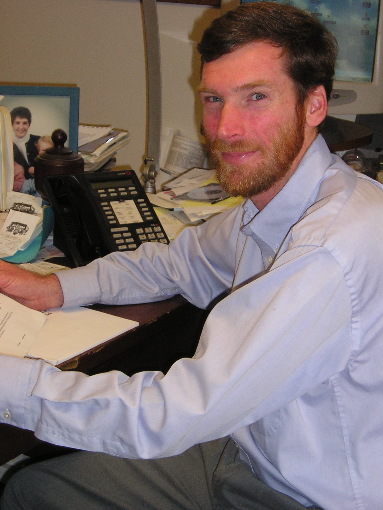 John Waite is the Executive Director of the Franklin County Community Development Corporation where he has helped hundreds of small businesses gain traction in their efforts to grow their markets. He has established successful micro-lending operations in various parts of Africa during his time with the Peace Corp.
John Waite is the Executive Director of the Franklin County Community Development Corporation where he has helped hundreds of small businesses gain traction in their efforts to grow their markets. He has established successful micro-lending operations in various parts of Africa during his time with the Peace Corp.
John will be facilitating the discussion on Taking on debt; how much do you really need?
The Summit: Resilient Businesses Kick-Start the Conversation
Resilient Businesses Summit
One Day. Hundreds of Small Businesses.
One Goal. Build a Bridge.
11.13.2010
Small businesses are at the heart of our economy: their resilience is essential to a strong, successful, and influential industry. It is well documented that small businesses generate more jobs than any other scale business or sector per investment dollar. With their dollars remaining in their communities, they have the largest impact on local economics which increases the impact of the dollars invested in such businesses. But their inherent success is challenged by a lack of big business and federal support that comprehends the particular needs of small and micro-businesses.
The support services currently in place to help small businesses are mis-targeted. For example, the Small Business Association (SBA) has emergency loans as part of the Recovery Act. All studies of micro-loans show a higher payback rate then larger business loans and yet the SBA loans under $30K have an extra ‘high risk’ surcharge. There is a disconnect between services providers and the very Small Businesses they propose to support.
In this summit, we bring together the voices of small businesses and their potential support systems. We lay the cards on the table and discuss the needs, the challenges, and the practices, and leave with a plan for instigating change. What does it mean to be viable and successful? What are supportive policies? What exactly will the new Small Business Funding law provide? What are the necessary community structures that need to be in place in order for this to happen? How can existing organizations and government programs provide for scaled services?
We lay the foundation to
Bridge the Gap
between the needs of Small Businesses
and their Big Business and Federal supporters.
Economic Impact
The estimated 29.6 million small businesses in the United States:
- Employ just over half of the country’s private sector workforce
- Hire 40 percent of high tech workers, such as scientists, engineers and computer workers
- Include 52 percent home-based businesses and two percent franchises Represent 97.3 percent of all the exporters of goods
- Represent 99.7 percent of all employer firms
- Generate a majority of the innovations that come from United States companies
Source: U.S. Small Business Administration Office of Advocacy, September 2009
Glossary
Microbusiness – A common term used for businesses with under 5 employees.Microbusinesses are so small, however, that there are few, if any, financial or government resources in place to ensure their resilience.According the Census Bureau’s 2007 report, 10% of Small Businesses (under 500 employees) have under 5 employees. Less commonly used are the terms Nanobusiness or Very Small Bussiness.
Microfinance, Microcredit, Microloan – first coined for very small loans being made to entrepreunurs in impoverished communities whose work would help establish permanent income and food, it is now growing in use for within the United States. Microcredit is a means to finance the smallest of businesses.
Resilient Business – A small business that has the fortitude, support, resources, and creativity to survive and thrive.
Small Business – The U.S. Small Business Association (SBA) provides standards for defining a Small Business for purposes of federal programs and the SBA’s financial programs. The guidelines vary per industry. Small Business manufacturers employ under 500-1000 people and whole sale traders under 100 employees. All other industries are measured by annual receipts which can range from $750,000 (soybean farming) to $7 Million (performing arts) to $175 Million (commercial banking). If these numbers seem high, they are. The U.S. lacks appropriate support systems for the 70% of Small Businesses with under 100 employees (Census Bureau 2007). The SBA website has in-depth information about the accepted policies for defining a Small Business.
Sustainable Business – Now used predominantly surrounding businesses whose focus includes work within environmental (green) resources and socially responsible fields.
Nov 13, 2010 – Strategies for Small Resilient Businesses
More info coming Soon
